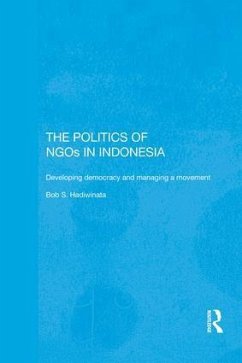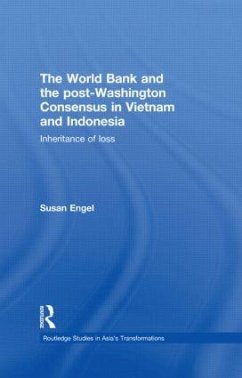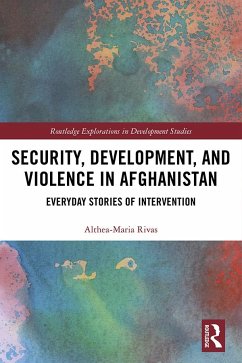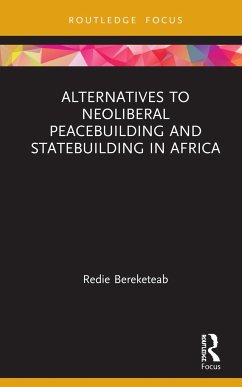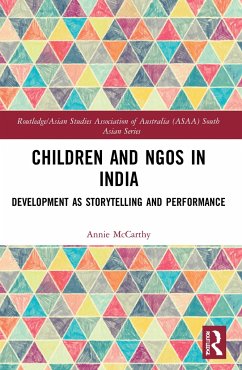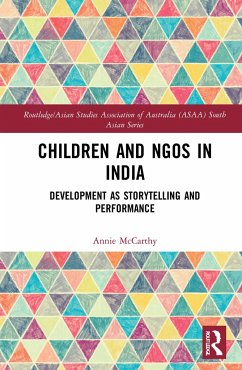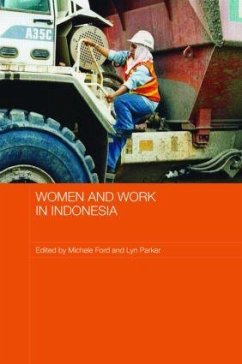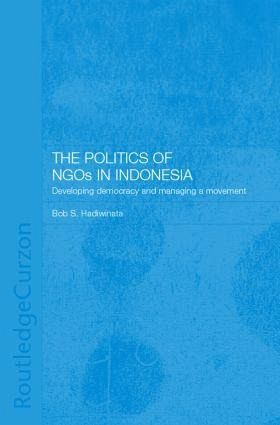
The Politics of NGOs in Indonesia
Developing Democracy and Managing a Movement
Versandkostenfrei!
Versandfertig in 1-2 Wochen
177,99 €
inkl. MwSt.
Weitere Ausgaben:

PAYBACK Punkte
89 °P sammeln!
Non-governmental organisations have proved crucial to political and social development in developing countries, and perhaps none more so than Indonesia, Southeast Asia's biggest country. This book deals with two major issues: how Indonesian NGOs survived under Suharto's authoritarian rule; and how NGOs contributed to the promotion of democracy in the post-Suharto era. NGOs are often perceived as the cornerstones of vibrant civil society, providing voices for the disenfranchised and creating centres of influence outside the state. Yet through an analysis of primary material, Bob S. Hadiwinta's fascinating study argues that NGOs must adjust their activities in accordance with local social and political conditions, and that NGOs are sometimes at odds with the local communities they purport to represent. If NGOs are to change from 'development' to 'movement' in democratic post-Suharto Indonesia, they must adjust not only their management and working style, but also their very ideology. This comprehensive study will be an important book for scholars interested in Asian studies, Indonesian politics and development studies.





